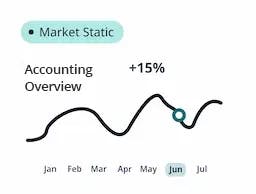
VAT in UAE
Value Added Tax (VAT) was introduced in the United Arab Emirates (UAE) on January 1, 2018, at a standard rate of 5%. VAT is a tax on the consumption of goods and services, and it applies to most goods and services in the UAE, including imports. The VAT system is administered by the Federal Tax Authority (FTA) in the UAE. Businesses that are registered for VAT in the UAE must charge VAT on their taxable supplies of goods and services, and they are entitled to claim back the VAT they have paid on their business expenses. Certain supplies, such as healthcare services and certain educational services, are exempt from VAT.
+7k
Customers
+26k
Downloads
97%
Client Satisfaction
What is VAT and
How Does it Work?
What is VAT: Value-added tax widely known as VAT is an indirect tax that is charged on the supply of goods and services. It has been executed in more than 160 nations and on April 1st, 2021 Oman will join the association of countries that have executed VAT. The VAT being a new system, businesses need to know the concept of VAT and how the structure works.
How does VAT System work?
The tax is charged on value addition in every phase of the supply chain. This is attained through the perception of input VAT deduction, which permits the industry to set off the VAT paid on procurements known as Input VAT along with Vat collected on the sales know as Output VAT. Let us understand the tenure of VAT Filing
- Businesses functioning with more than a certain threshold must file the VAT return once-a-month.
- Businesses functioning with less than a certain threshold must file the VAT return quarterly.
The Ministry of Finance in Oman may choose to outline a diverse tax filing period for particular businesses that fail to meet the terms. This may lead to fines or penalties.
Exclusive of VAT
Taxable Value = Rate of VAT÷100
Inclusive of VAT
- VAT amount = Value inclusive of tax X tax rate ÷ (100 + tax rate)
- Taxable Value/Price = Value inclusive of tax X 100 ÷ (100 + tax rate)

